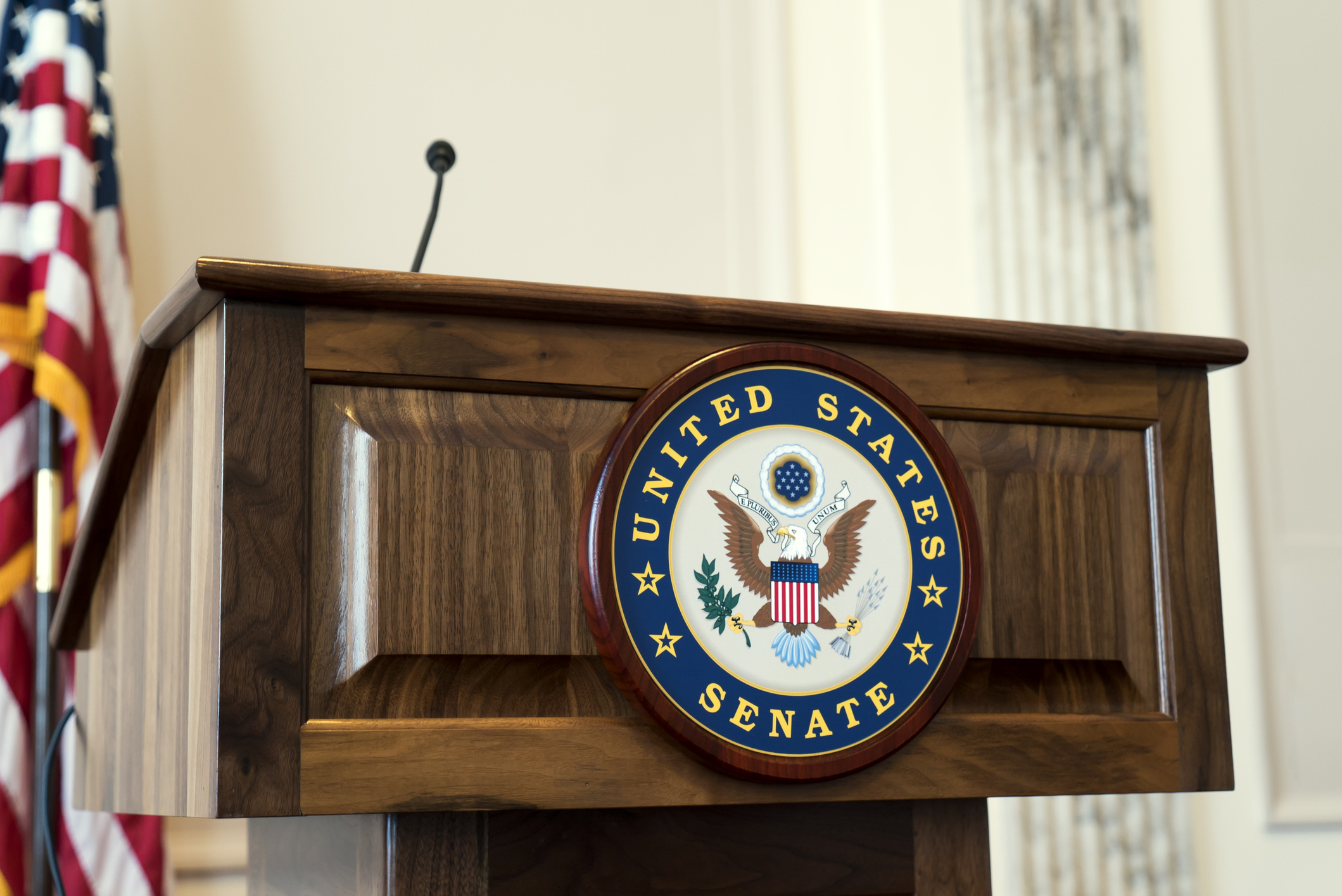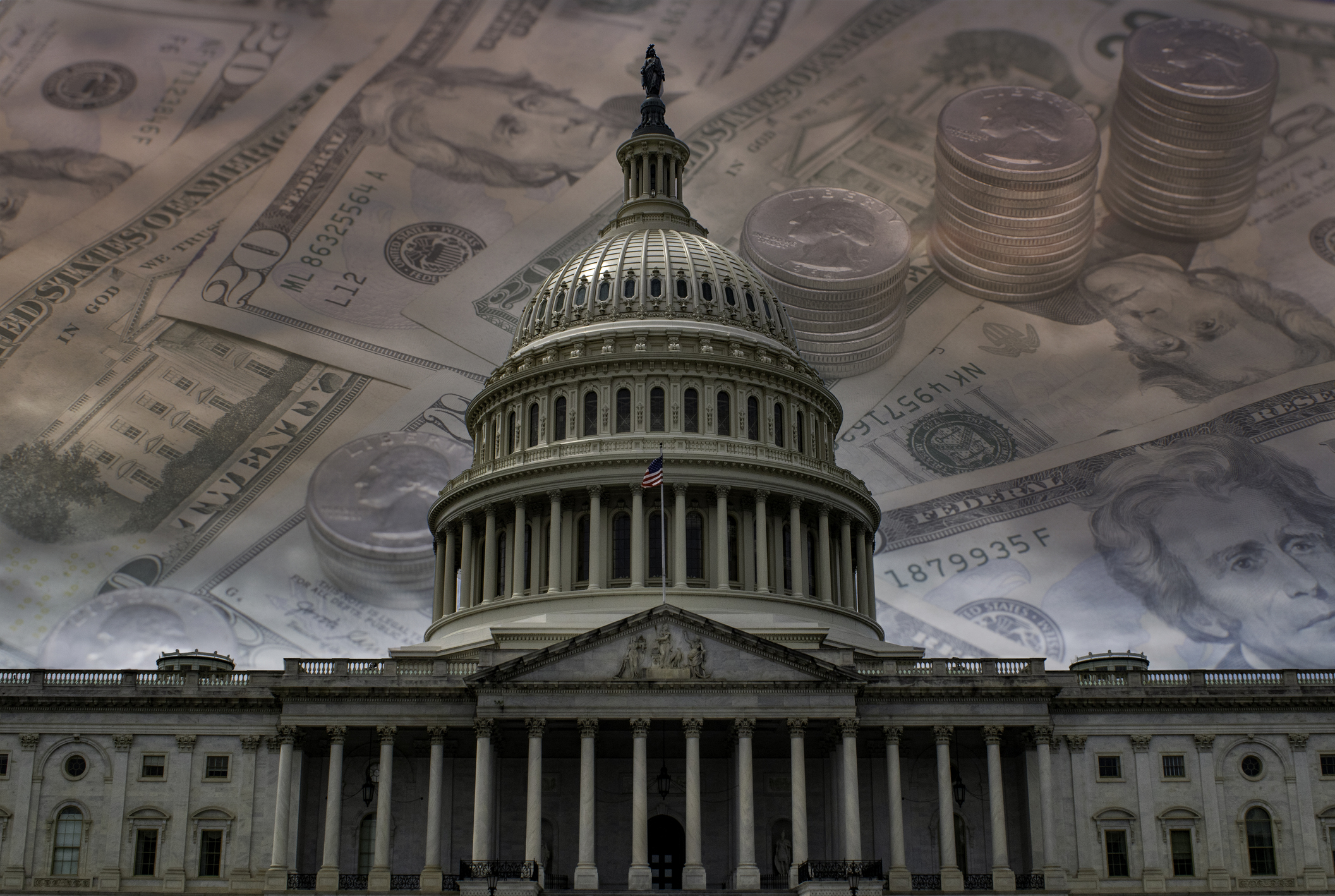The Senate’s version of the “One Big, Beautiful Bill” has arrived, with major implications for local governments. While it mirrors several provisions in the House-passed bill (H.R. 1), it also includes key differences, particularly around Medicaid. The path to passage in the Senate is not straightforward, with negotiations still ongoing on Medicaid, clean energy tax credits and public lands. As the House and Senate move toward negotiations on a final package, local leaders should understand how the Senate’s proposal could shape city budgets, services and infrastructure planning.
Key Takeaways
- Significantly, key outreach from local leaders across the country ensured that the tax-exemption on municipal bonds remains preserved in both the House and Senate bills, for now.
- As it pertains to Medicaid, there is a divide between Republicans who have voiced concerns about the Senate Finance Committee’s steep proposed cuts and those who are urging even deeper cuts. While a new fund is expected to be inserted to help rural hospitals, it remains unclear if this will be enough to garner the necessary votes.
- While the Direct Pay provision supporting local government clean energy projects remains intact, the tax credits are proposed to be phased out considerably sooner than the current timeline; other changes are likely to make the tax credits usable for local governments.
- The Senate parliamentarian has ruled against the inclusion of many of the proposed changes to the SNAP and Medicaid programs, as well as provisions related to grant programs and public lands.
- The final text that will be voted on by the Senate is still a work in progress, and the chamber is running up against its self-imposed deadline of having the bill clear the floor by July 4.
Here is a look at key provisions in the Senate bill that are important to cities, towns and villages.
Finance Committee
Medicaid
The Senate bill includes most of the House’s proposed changes along with the following new provisions that would likely yield further savings:
- 3.5% Provider Tax Cap in Expansion States: The Senate measure would incrementally lower the allowable provider tax in Medicaid expansion states starting in 2027 from the current 6 percent until it hits 3.5 percent in 2031. The dial-down would not apply to nursing or intermediate care facilities. That would be a significant departure from the House-passed bill, which would put a moratorium on states’ ability to raise their provider tax beyond the current 6 percent. Already, some Republicans in the House and Senate have pushed back against this proposal. The Senate parliamentarian ruled against this provision.
- Expanded Work Requirements: Like the House bill, the Senate proposal would impose an 80-hour a month work requirement (including community service or school) on childless adults who are considered able-bodied and working-age, with some exceptions. However, it would also apply to parents/caregivers of children aged 14 and up, subjecting an even broader population to the paperwork and reporting requirements.
- Cutting Certain State Directed Payments: The House version would freeze State Directed Payments (SDPs), under which states may direct Medicaid managed care plans to make additional payments to providers to pursue a state’s overall Medicaid program and quality goals. Currently, states can match their SDP payment limit with commercial insurance rates. The Senate measure reduces SDP payment limits by 10% percent every year until they reduce to Medicare rates, or, in non-expansion states, to 110% of Medicare rates.
- Eliminating Medicaid and CHIP eligibility for Many Types of Legal Immigrants: Refugees, asylees, parolees, certain abused spouses and children and certain victims of trafficking would lose their eligibility for Medicaid coverage. Lawful Permanent Residents would still be eligible after a 5-year or longer waiting period, along with certain Cuban immigrants and–per state option–lawfully residing children and pregnant people. The Senate parliamentarian ruled against this provision.
- Lowers FMAP for “Emergency Only” Services for Immigrants in the Medicaid Expansion Category. This provision would lower the Federal Medical Assistance Percentage (FMAP) rate for emergency services provided to low-income adults who are ineligible for full scope Medicaid because of their immigration status. This shifts costs to the states for providing services that federal law requires them to provide. The Senate parliamentarian ruled against this provision.
Clean Energy/Direct Pay
The Senate bill, similar to the House bill, makes changes to the clean energy tax credits that local governments are eligible for through the Direct Pay provision of the Inflation Reduction Act. The accelerated phase-out schedule and new, complex requirements will limit the ability of local governments to take advantage of this incentive.
- Tech-Neutral Production Tax Credit (45Y) and Investment Tax Credit (48E): The Senate bill phases out tax credits for wind and solar projects that begin construction after 2025 and eliminates them by 2028 (compared to current law, which begins phase-out in 2034). The Production and Investment tax credits for nuclear, geothermal, hydropower and energy storage projects phase out beginning in 2034.
- Qualified Commercial Clean Vehicles (45W) and Alternative Fuels (30C): The Commercial Clean Vehicles tax credit, which local governments have used to convert their fleets, would terminate 180 days after enactment of the bill. The Senate bill would also impose various restrictions for vehicles acquired after June 16, 2025 that have a gross vehicle weight under 14,000 pounds. The Alternative Fuels Refueling Property Credit would terminate 12 months after enactment. Under current law both tax credits are available to local governments through 2032.
- Domestic Content Requirement: The Senate bill would require that direct pay entities meet the requirements for domestic content or lose the entire eligibility for the Production or Investment Tax Credit. This would apply even in situations where relevant products are not produced in the U.S. in sufficient quantity or if procuring them domestically would be prohibitively expensive. Under current law, domestic content is considered an optional “bonus credit” that boosts the amount of the tax credit.
- Foreign Entities of Concern: Like the House bill, new restrictions around “foreign entities of concern” are complex and vast. Local governments would likely find it difficult to determine whether they comply, effectively making the tax credits inaccessible and unworkable.
Taxes and Finance
- Municipal Bond Tax Exemption Preserved: Both House and Senate drafts retain the tax exemption for municipal bonds. As negotiations continue, local leaders should remain vigilant and engaged to ensure this key financing tool stays protected in the final bill.
- No Change to SALT Deduction Cap: While the House bill raises the State and Local Tax (SALT) deduction cap to $40,000, the Senate bill keeps the cap at $10,000 for individuals and families. Without action, the cap would expire entirely, restoring the full deduction.
- Permanent Increase for Low-Income Housing Credit: The Senate version permanently raises the state ceiling for Low Income Housing Tax Credits by 12% and lowers the bond-financing threshold to 25% starting in 2026 — a more long-term approach than the House’s temporary 12.5% bump through 2029.
- Debt Ceiling Increase: The Senate bill raises the federal debt ceiling by $5 trillion, compared to $4 trillion in the House version. This could help provide more budget stability in the short term, though it’s likely to face scrutiny in negotiations.
Environment and Public Works Committee
The initial committee text included the claw back of unobligated funding and the repeal of various grant programs available to local governments through the IRA under the U.S. Department of Transportation and the U.S. Environmental Protection Agency — similar to the House bill. However, the Senate Parliamentarian recently declared that only the claw back language for unobligated funding could remain in the reconciliation text subject to the 50-vote threshold. It was determined that language to deauthorize the grant programs violated the Byrd Rule (meaning that it does not have a specific budgetary connection) and therefore would be subject to a 60-vote threshold.
Energy and Natural Resources Committee
The initial committee text likewise included a provision that would mandate the sale of certain Bureau of Land Management and National Forest System land for housing and other purposes, the Senate Parliamentarian ruled the provision violates the Byrd Rule. Senator Mike Lee (R-UT), chair of the committee, is reworking the language, but it is unclear if any revised language will be included in the final Senate package. Language around public land sale is not included in the House bill.
Agriculture Committee
Supplemental Nutrition Assistance Program (SNAP)
- Shifts Costs to States: The Senate proposal includes a shift of 5-15 of food benefits, based on error rate, from the federal government to states. The Senate parliamentarian ruled against this provision.
- Expands the Work Requirement: The Senate proposal expands the work requirement for able-bodied adults without children, which requires documentation of 20 hours of work per week, to adults aged 55-64 and to parents with children over age 9. The proposal also takes away exemptions for this requirement from veterans, people experiencing homelessness, and former foster youth.
- Ends Food Assistance to Most Immigrants: The Senate bill removes food assistance to all immigrants except those who are lawful permanent residents. This impacts refugees, asylees, certain survivors of domestic violence and certain victims of sex /labor trafficking. The Senate parliamentarian ruled against this provision.
Health, Education, Labor and Pensions Committee
Pell Grants
- Retains Current Eligibility for Part-Time Students: The Senate bill reverses changes to Pell eligibility contained in the House-passed bill that would have eliminated Pell Grant funding for students enrolled part-time. The Senate bill also rejects the House’s proposal to increase the required credit hours for full-time students by 15 credit hours.
- Expands Access to Workforce Programs: The Senate bill expands Pell eligibility to include short-term, workforce-focused training programs.
- Increased Funding: The Senate bill includes $10.5 billion in additional funding to address a projected shortfall.
Learn More and Take Action
The Senate aims to pass their bill by July 4, upon which it would be sent back to the House for a vote. Local leaders should continue to reach out to their Members of Congress to ensure that municipal priorities are protected. Read NLC’s letter (PDF) to Congress on local government priorities.
Depending on your state and our Senate target list, NLC has suggested tweets around Medicaid and clean energy. Once you complete the short form with your information, you will have access to our message templates. Take action here.
Read more about the provisions in the House bill that impact local governments:














